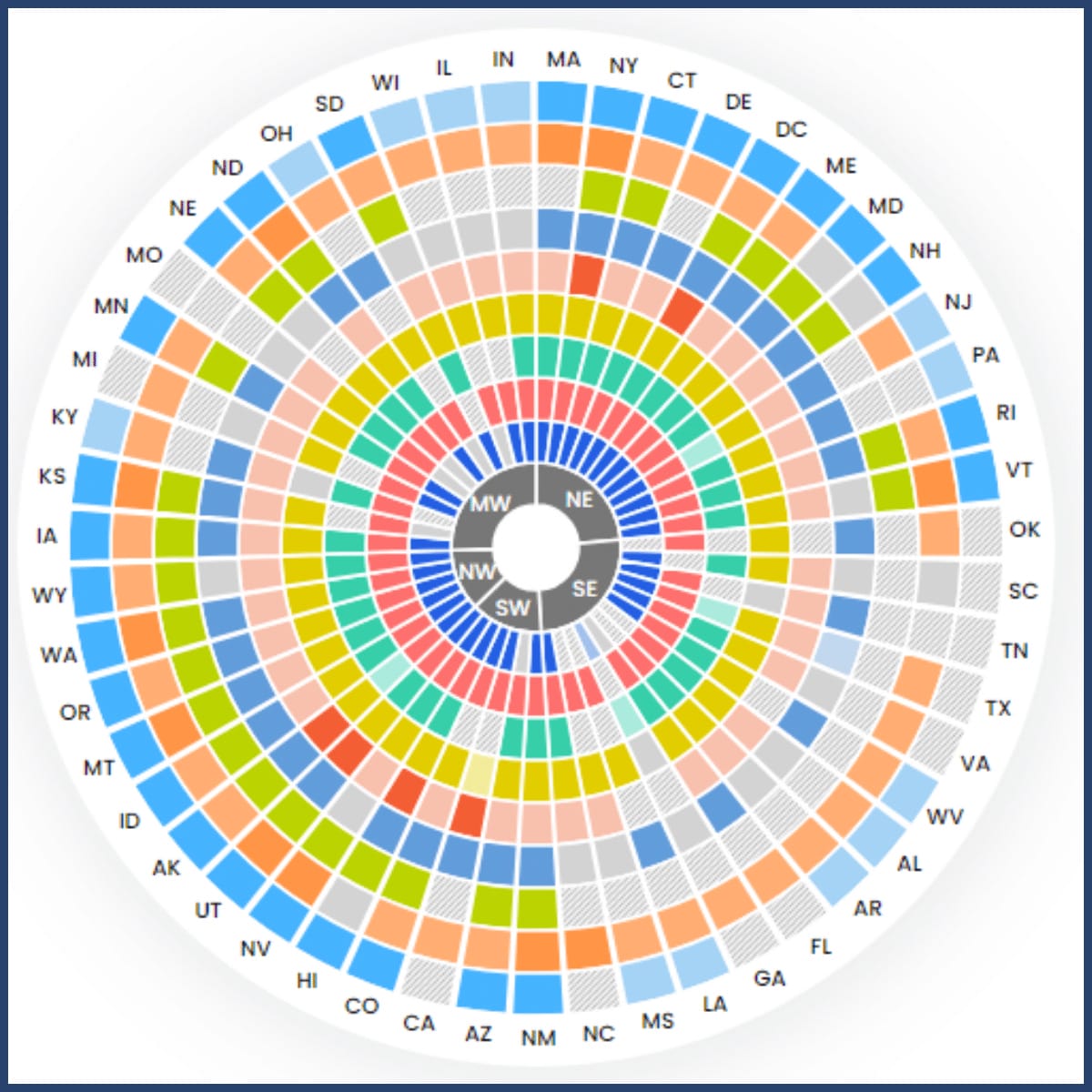Physician Assistant: Job Overview
Physician Assistant: Job Overview

Since the creation of the physician assistant role in the 60s, physician assistants (PAs) have emerged as one of the most critical healthcare providers in modern medicine. In this guide, we answer your physician assistant FAQS on everything from licensing to salary to working locum tenens PA jobs. Read on or skip to the section of your choice:
Physician Assistant Overview
What Can a Physician Assistant Do?
Physician Assistant vs. Nurse Practitioner
Physician Assistant (PA) Overview

What Does a Physician Assistant Do?
Physician assistants are versatile licensed medical professionals who practice medicine in a wide range of specialties and settings. While the role originated in 1967 to provide patient coverage during a physician shortage, the role – and opportunities for PAs – has expanded in the fifty plus years since.
While many physician assistants serve as primary care providers, PAs practice medicine in more than 100 specialties, from urology to urgent care to surgery.
What Can a Physician Assistant Do?
Physician assistants can serve as primary care providers, conduct physical exams, diagnose illnesses, prescribe medication, assist in surgery, and so much more.
The full scope of practice for a PA is determined on a state level. While physician assistants require supervision from a physician to some degree in every state, the exact limitations of what a PA can do, and how independently PAs can practice can vary wildly from one state to another.
What is the Difference Between a Physician Assistant and Nurse Practitioner?
While physician assistants and nurse practitioners sometimes perform similar medical responsibilities, their education and practice backgrounds are very different.
Nurse practitioners (NPs) are advanced practitioner registered nurses (APRNs). All NPs are registered nurses (RNs) first, and then attend NP school to get the degree necessary for a nurse practitioner license. Nurse practitioner practice and education has traditionally revolved around a patient-oriented model.
Physician assistants, on the other hand, do not come from a nursing background. PAs must get a master’s degree in an accredited program as part of their criteria for licensure. Physician assistant programs have traditionally resembled the criteria of medical school, following a disease-centered model.
One big distinction between the two roles is independent practice. Nurse practitioners can practice independently in many states, while physician assistants must always have at least some relationship with a physician in a supervisor role in order to practice.
While both NPs and PAs can perform many of the same medical practices, such as prescribing medicine and signing death certificates, scope of practice changes for each state. Generally, nurse practitioners experience more autonomy and more freedom to practice medicine in more states than physician assistants.
Physician Assistant Resources

Physician Assistant Scope of Practice by State
Get a state-by-state rundown of physician assistant scope of practice.

How to Get a PA License in Another State
The experts at Barton handle the licensing logistics (and fees) for you, but it’s still helpful to understanding how PA licensing works. Read on for an overview of PA licensing and the quickest states to acquire a license.

Physician Assistant Salary Guide
Locum PAs earn more money than their perm counterparts! Get all your locum and perm PA salary questions answered.
Physician Assistant Jobs Overview

Physician Assistant Job Outlook: 2024
Physician assistants have one of the brightest outlooks of any profession, in or out of healthcare. Physician assistant was named the second best health care job for 2024 by the U.S. News & World Report, as well as the fourth best STEM job and the fifth best job across all occupations.
Physician assistant job growth is similarly positive, with PA employment projected to grow 27 percent from 2022 to 2032, according to the BLS. That is nearly ten times the three percent growth rate projected for all occupations.
The BLS predicts more than 12,000 new PA job openings each year over the next decade. Facilities also report an increase in locum tenens physician assistant jobs, meaning that PAs will enjoy more choice than ever before about which kinds of roles best suit their needs and lifestyle.
Find Locum Physician Assistant Jobs
 Physician Assistant - Family Practice
Physician Assistant - Family Practice
Your next locum tenens opportunity awaits in New York! Our client is looking for a physician assistant specializing in family practice to begin coverage in early September. Hours include 8a - 5p shifts from Mondays - Fridays. The selected locum will be handling physicals, health screenings, med refills, and other... View This Job







Indiana is the site of your next locum tenens assignment! Our client is looking for a physician assistant specializing in wound care to begin coverage immediately. Hours include 8a - 6p shifts for 2-5 days per week. The selected locum will be handling debridement, healing treatments, and general wound care... View This Job







Your new job is waiting in Texas! Our client is looking for a physician assistant specializing in occupational medicine to begin coverage immediately. Hours include 8a - 5p shifts from Mondays - Fridays. The selected locum will be handling physicals, injury care, DOT's, and other occupational medicine cases. There... View This Job







Your next locum tenens opportunity awaits in California! Our client, a multi-specialty clinic, is looking for a physician assistant specializing in family practice to begin coverage in early October. Hours include 8a - 5p shifts from Mondays - Fridays. The selected locum will be handling physicals, women's health, prenatal care,... View This Job







Your new job is waiting in Illinois! Our client is looking for a physician assistant - hospitalist to begin coverage immediately. Hours include 12 hour shifts (7a - 7p) with a 7 on/7 off rotation. The selected locum will be handling rounds and general hospitalist cases. There is a chance... View This Job







Cross Maryland off your bucket list with this locum tenens assignment! Our client is looking for a physician assistant specializing in emergency medicine to begin coverage in early January 2025. Hours include 9-10 hour shifts. The selected locum will be handling all aspects of emergency medicine cases and procedures. There... View This Job
Locum Tenens PA Jobs Overview
Locum tenens is one of the fastest growing fields of work for physician assistants. The versatility and depth of the physician assistant profession, and the wide range of specialties and skills contained with in, make physician assistants an invaluable resource for facilities and hospitals in their efforts to provide quality care. New to locum tenens? Here’s what you need to know.
What is a Locum Tenens Physician Assistant?
A locum tenens (or travel) physician assistant Practitioner (PA) shares similar job requirements and duties to a fulltime or permanent PA. Travel PAs, known as locum tenens PAs, typically work short-term jobs, filling temporary and often urgent staffing needs at medical facilities around the country.
Where Can Locum Tenens PA work?
Locum tenens PA can work in any state where they are licensed. In order to serve more communities and expand their job opportunities, locum PAs will usually hold multiple licenses. Barton Associates will help locum PAs with licensing including filling out paperwork and paying for licenses in certain situations.
Can a Permanent PA become a Travel PA?
Yes! Many of Barton’s locums work a few weeks or days at a time while continuing to hold a permanent job or during retirement. Barton Associates covers travel, housing, and handles licensing/credentialing to make the transition from perm work to locums as seamless as possible.
What Facilities does Barton Associates Work With?
Barton Associates’ account executives work with facilities in all 50 U.S. states and all U.S. territories. These facilities are located in cities, small towns, in the mountains, and in remote desert locations. Working with Barton means access to jobs at hospitals, urgent cares, private practices, schools, IHS facilities, critical access hospitals, and even emergency response and government jobs.
Do Travel PAs Make More Money than Permanent PAs?
The answer is, “it depends”. Hourly or daily rates for a locum PA tends to be higher than a salaried PA due to the ability to the PA’s ability to negotiate rates through their recruiter. For that reason alone, working as a travel PAs tends to be more lucrative than working as a perm PA.
Pros of Being a Locum Tenens Physician Assistant
READ ABOUT WHAT MAKES BEING A LOCUM TENENS PA A GREAT CAREER PATH
A major perk of becoming a locum tenens PA is working and learning in a variety of practice settings across different facilities. For Dawn S., PA-C, being a locum tenens provider accomplishes exactly that. “You can really draw from a lot of different places,” she explained. “I think it’s helped me become more marketable, actually. If I ever decide to stay in one area, I have a lot of ideas,” she said. Read more about Dawn’s story as a locum tenens PA.
Also, check out these stories from other locum tenens PAs we have had the pleasure of speaking to!
Barton's Physician Assistant Share Their Stories
 Summary
Summary
Locum Tenens PA Heather D. shares her unique locum tenens journey
Locum Tenens PAs Trust Barton Associates


Michael M., PA — All promises kept. Issues were addressed promptly and resolved completely. Payment was on time and correct. This was the best locums experience I have had.
Danielle B., PA — My recruiter is dependable and honest. The travel arrangements were great. One mishap with credentialing, but would still recommend Barton.
Susan S., Healthcare Professional — Prompt pay. Great customer service!
Check out some more reviews from our other providers!
BARTON'S 3-STEP PROCESS
How It Works
Barton coordinates your job search from start to finish!
TALK WITH A REP
We’ll schedule a phone consultation with a Barton Associates team member to discuss your interests, goals, and work history in order to get a sense of what you’re looking for in your next job.
Your Barton team will then go to work, compiling a list of open jobs in our extensive network that match your interests and skill set.
REVIEW YOUR OPTIONS
Once you’ve had a chance to evaluate your list of opportunities, your Barton rep will submit your information to facility you want to take an assignment at.
If there’s a match, we’ll work with the client manager on next steps.
START YOUR JOB!
Don’t worry! Barton Associates will handle licensing, credentialing, and travel arrangements before you arrive.
Your Barton rep will also work with your new facility to ensure you’re set up and ready to go on day one.